Money does not grow on trees, so it is very disheartening for any person to fall into scams and waste millions of money because someone else deceived them something to be true. These scams are alarmingly increasing today as fraudulent transactions get easier to do – by snail mails, phone calls, emails, door-to-door, and vouchers – and they can be done anywhere in the world. They usually try to deceive a person by creating an intimate relationship with them or surprising the victim with a sheer amount of money or prize in return. In this time of economic crisis, it can be tempting but always be vigilant against these tactics. Beware and check out this list of 10 Most Popular Scams to not fall for!
10 – Emergency Relief Scam

Scammers can take even disasters and catastrophic event advantage. How? By deceiving kind-hearted people to generously donate sums of money to transport relief goods or extend aid to people suffering a loss due to tsunami, earthquake, flooding, and others. They will set up fake charity institutions or phish by forwarding donation requests to your email. When you land on their website, it will automatically steal your password and other essential details. Also, they will try to make up a story and act like a victim trying to find sponsors to help them financially.
9 – Foreign Lottery Scam
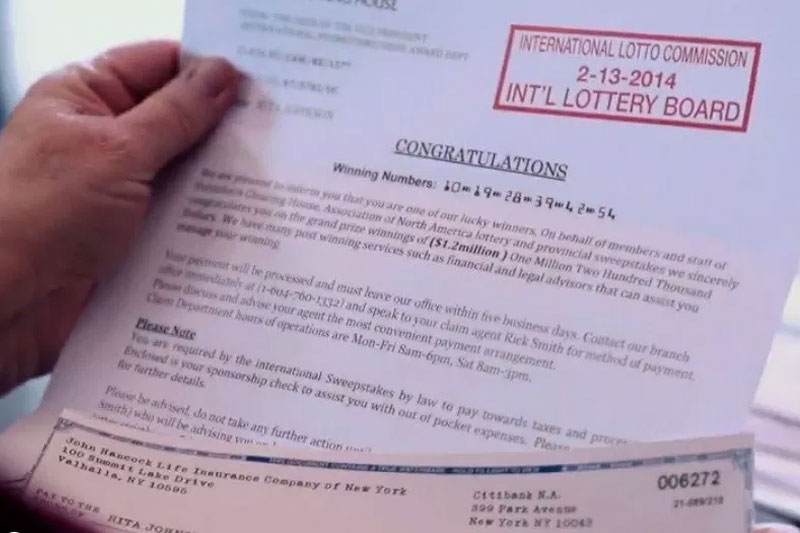
The trick in foreign lottery scam is to remind yourself whether you have joined any lottery at all. If not, it is safe to assume that it is a scam and should be treated with the utmost suspicion. Usually, this is done through emails and even text messages, telling you that you are a winner if a random lottery. But to get the ‘prize’, you need to pay off a small amount of fee for transport or administration. Usually, many people are deceived by this scam because they are blinded of such huge amount of cash, as compared to the minimal fee that has to be paid.
8 – Hotel Room Scam

Even while you are away and enjoying your vacation, you can still be randomly spotted by a scammer by using hotel room telephone numbers. Usually, they will call you in the middle of the night (when you are sleepy and not in your optimum state to transact numbers and figures) and pose as the front desk manager informing you of some problem. He will then apologetically ask for your credit card number only to realize in the morning that it was not the hotel number.
7 – Money Order Cash Scam

The Money Order Cash Scam is different from the others because, in this one, the scammer takes an ample amount of time to earn our trust and create a bond between you too. More usual than not, it is done through online dating sites. Once the poser can establish trust, they will start phishing money from you by requesting to cash some money orders and wire the transfer to them because of some emergency in another country that they are working at the moment. This is coupled with forged money order by making the amount larger than supposed to – like $50 to $5000 just by adding zeros in it.
6 – Inheritance Claim Scam
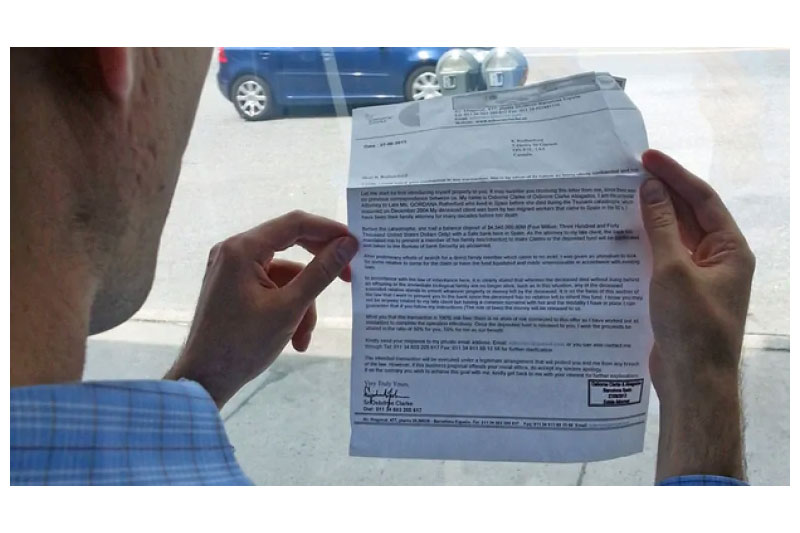
Another popular scam is the fake inheritance claim scam, which is usually done through snail mail to create a more formal and legitimate feel. It is done by sending the victim a letter informing him of receiving a lost inheritance with a significant amount of money involved. The scammers usually pose as estate locators who found the lost heritage or a random rich person wanting to share a part with you so long as you help them transfer the money out of the country (usually Africa or Nigeria). The victim will be asked for bank details and successfully rob all of your savings.
5 – Free Holiday Scam

According to statistics, this type of scam is the most costly one and more productive because many people are lured off the idea of a free holiday or free getaway. It usually works by giving the victim a scratch card where she will be thrilled to discover that she won a free holiday voucher. To gain the prize, the victim will have to attend a presentation, usually in some hotel outside the area. During the performance, you will be pressured to sign into membership without realizing all the hidden costs (because you have not had the time to read the contract properly) which are made into compulsory extras.
4 – Work At Home Scam
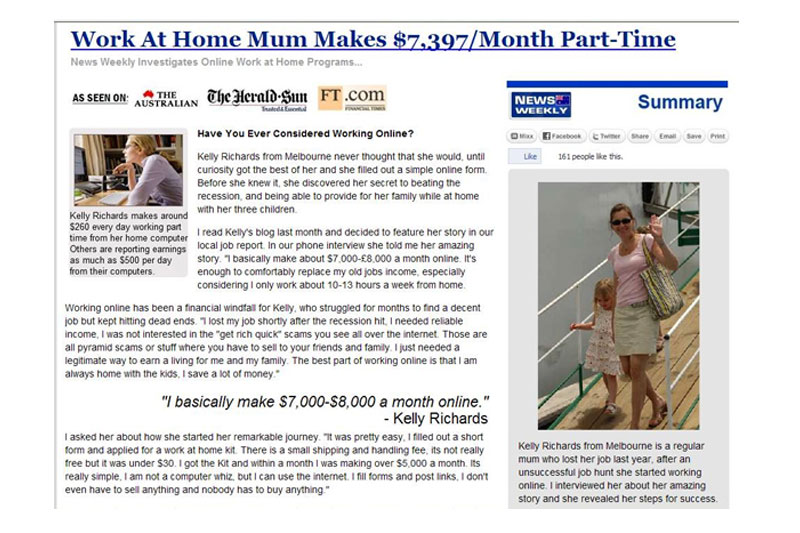
Today, work at home opportunities are viral, especially for homestay mom or students who can work part-time. So, scams are also very popular in this case! This scam usually attracts people who are looking for opportunities to augment their income by promising to get paid with a large amount of salary for just a minimal period of work. Often, they would display cheques that display their huge salaries. But how to the scammers rob you? You will realize that the profit you make is disproportionate, especially with their registration fees included.
3 – Plane Ticket and VISA Scam
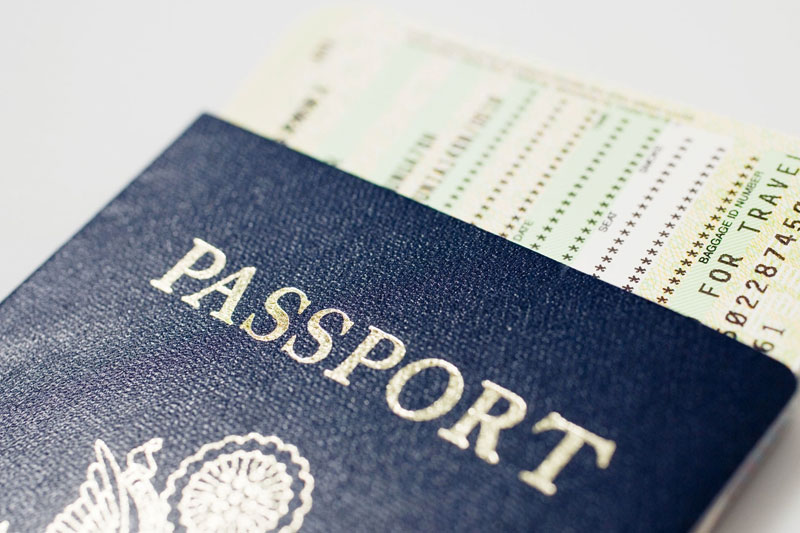
Also very popular on online dating sites, this scam takes time because the scammer needs to build an intimate relationship with the victim to forge trust when they request for money. In this case, the supposed money is necessary for the application of VISA or the booking of a plane ticket. However, once you send the money, the visit will never actually materialize. On the other hand, some will not actually ask for money to buy and will even send a scanned copy of their ticket, but at the last minute something will go wrong, and you will have to send money to fix it.
2 – 419 Scam
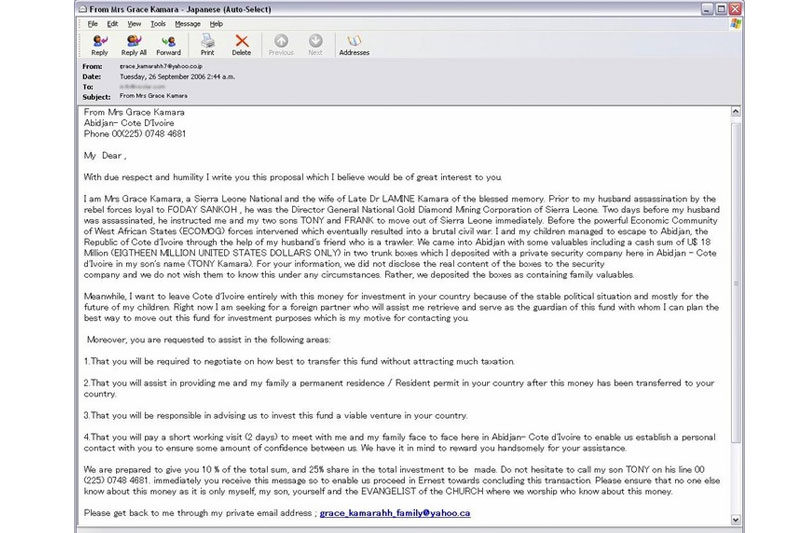
The 419 Scam is usually done by scammers in Nigeria. There are three crucial points in this scam: the scammer will pose as an accountant, a lawyer, or even a government official; there is an urgent need to transfer millions of dollars in the UK because of some imminent catastrophe in the country like a coup or natural disaster; and lastly, you will be shared with a portion of that million for your cooperation to transfer it. The key is that you will be asked for your bank details and will even promise for an upfront payment to ensure you that it is real, in which case, do not!
1 – Nigerian Emergency Scam
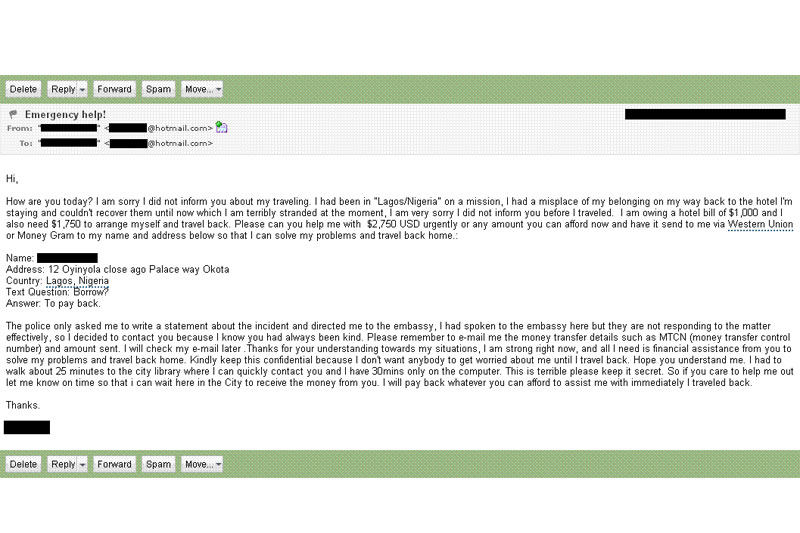
This is the most popular scams one mainly because it is very prevalent in online dating sites, where the Nigerian citizen will pose as a Canadian, Australian, or US citizen (which is very easy to do in the online community). Then, the scammer will continuously communicate with you for weeks and even months, to build friendship and trust. After that, they will spin up some story of emergency in Nigeria and Ghana, which has many variations – whether they have a friend that needs an immediate operation, or they met an accident and has to pay the hospital bills, among others. The key is that they will try to win your heart and afterward, your wallet.


